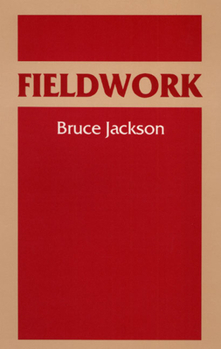Fieldwork
Select Format
Select Condition 
Book Overview
Fieldwork deals with the practical, mechanical, ethical, and theoretical aspects of collecting data. Jackson discusses how fieldworkers define their role, how they relate to others in the field, and how they go about recording for later use what occurred in their presence. This treatment offers an abundance of useful information to those who do folklore fieldwork as well as those who work in any of the other social sciences or humanities. An appendix relates the author's own experiences while documenting Texas's death row.
Format:Paperback
Language:English
ISBN:0252013727
ISBN13:9780252013720
Release Date:February 1987
Publisher:University of Illinois Press
Length:328 Pages
Weight:1.14 lbs.
Dimensions:0.9" x 6.0" x 9.0"
Customer Reviews
1 rating
humble, practical, and inspiring
Published by Thriftbooks.com User , 17 years ago
I'm not a student of folklore or anthropology, just someone who is possibly interested in interviewing some neighbors in support of a freelance book project. Though this book seems designed for a college curriculum, I found this to be light reading, and surprisingly inspiring. Jackson puts proper emphasis on such topics as maintaining balance between immersion and detachment, focusing your topic, and understanding the difference between a conversation and an interview. Though I'm certainly a novice in this field, I can only imagine that Jackson's laid back but serious tone sets a great example for other folklorists. Ethical issues, such as respecting your subject's interests and time, treating them as you'd want to be treated, are pervasive throughout. More than half of the book is devoted to a section on "mechanical matters." A lot of this describes technology that is long since outdated since this book was written in 1986 (reel to reel tape recorders?), but many of the concepts (such as microphone placement and the inherent limitations of machines) still apply.






